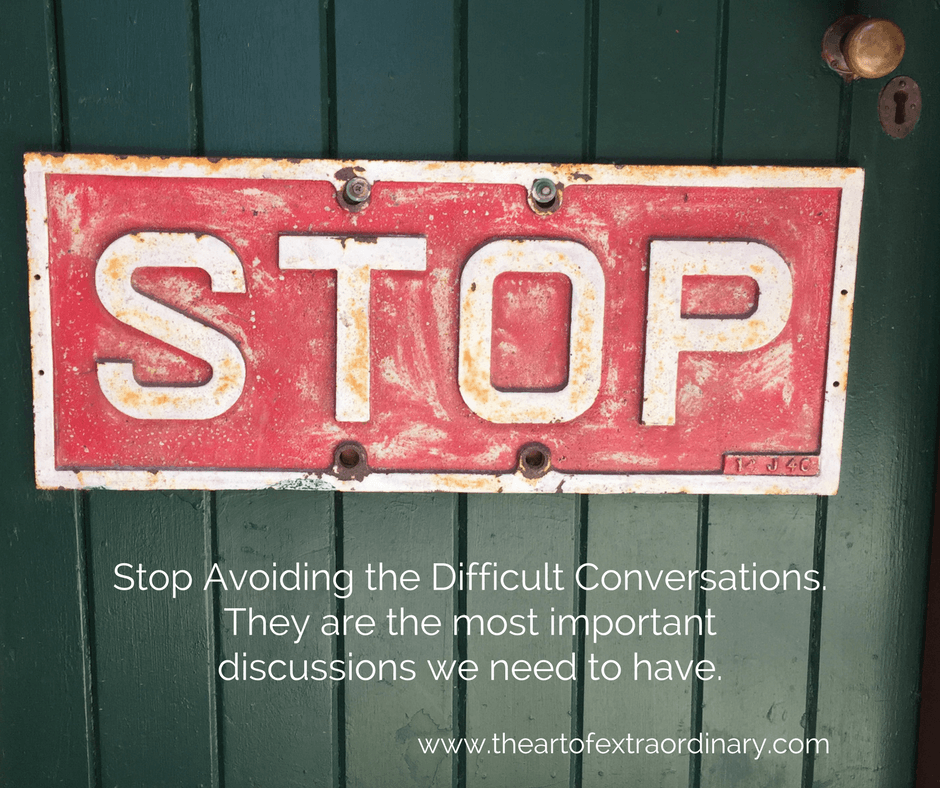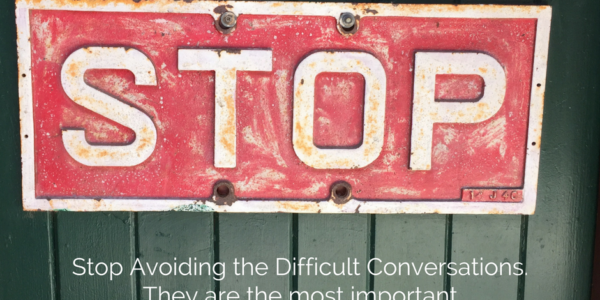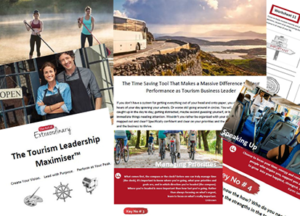
Are you needing to have a conversation with someone?
It could be a business discussion or something personal.
It’s on your mind. It’s been niggling, bugging you and you’ve been putting it off?
Firstly – ask yourself why have you been putting it off?
Is it that you think it’s going to be awkward, painful, a tough conversation or quite uncomfortable?
Maybe for you or the other person/people?
What is it that you currently believe is going to be the outcome of ‘said’ conversation?
Do you already think it’s going to end in tears, you probably won’t get what you want, you won’t be listened to etc?
Or it won’t be received well at the other end?
The easy conversations we have, because we can control the way they go, we’re confident about the outcome and we are more likely to have no or less emotional attachment to what happens. We know we’ll be ok and it’s comfortable.
However for most of us it’s those difficult conversations that take us out of our comfort zone.
These are invariably the most important conversations to have, to get better at and improve our skill around.
Will they ever be easy? No, I doubt it, but I know from practice, that certainly it becomes easier.
The more we ignore or hold off on the conversations, the intensity and expectation build up in our mind.
Suddenly we can find ourselves climbing the mountain rather than the molehill as the saying goes.
So back to the conversation you know you need to have.
Stop running the avoidance, procrastination strategy – instead, use this 5 step technique for preparing for the difficult conversations, so you can feel calm, confident and ready.
1. Get Clear On Why
Why does having the conversation matter?
Relief, clarity, focus, attention, recognition, significance, …. Insert why it matters to you here. If you’re thinking because then you’ll have what you want. Eg. a pay rise or a 4 day week or new member on the team. Then ask yourself a different question.
Ask yourself “What will these things mean to me?”:
Payrise – could mean improved finance – which will mean save money – financial progress
A 4 day week – could mean self-care/nurture or opportunity for volunteering at school, contribution or could mean the possibility to work on your own business as a shift away from full-time employment (depending on your situation obviously)
New member on the team – could mean be more efficient/productivity, business growth, delegation, progress
2. Shift your Focus
Stop wondering how to have the conversation and shift your focus.
Do you wonder and contemplate having a conversation with someone, but you’re not sure how, so you literally think to yourself: “How am I going to do this or have this conversation….?”
Because it’s a difficult one, challenging or tricky. If you do, change the focus. Make sure you concentrate your energy and focus into “Why am I having this conversation?”
There are two tricks to this question.
It presupposes you will have the conversation (no backing out or down). It shifts your energy to a higher purpose, more effective focus.
So your why could be any number of these reasons or more eg. financial progress, self-care, opportunity, contribution, possibility, business growth, delegation etc.
3. What outcome do you want?
Now your why is clear and more focused, what do you want out of the conversation – more specifically:
List the things you want:
To feel acknowledged and validated
> To engage in a two-way conversation
> To be heard and listened to
> To provide feedback on a situation
> To get your viewpoint across
> To understand the set-up/situation/system (if it’s applicable)
> To get a feel for the company perspective, policy or procedure (or if it’s personal – it’s to understand the other person’s perspective – take the business/company out of it)
> To discuss options, next steps and where to from here
Now you have an extensive list of things you want….
Ask yourself “Is there anything else I’d really like?”
4. Consider the other person or people?
Now consider is there anything that would be beneficial for the other person?
Maybe consider here a few of these:
> If I removed judgement and didn’t go like a bull at a gate?
> If I speak up, value myself, despite hesitation and fear, the company (or person) needs to hear my perspective?
> If I trust myself and know I have what it takes to say what needs to be said, because it brings value either to the business, company, organisation, partnership, relationship…
5. Keep being your best self
The final key step to preparing and having these difficult conversations is to absolutely know you will do the best you can with the resources you currently have. The skills, knowledge and education you have. (Chant this as you walk into the conversation)
If you know you want to build your skill around being better at these conversations, investigate learning more. There are other very important factors we’ll look at in my next post about communication, written and spoken, tonality, our physiology, also your content, how to develop and use a great structure for having these types of difficult conversations. We’ll dive deeper into how to have them.
Until then, practice, practice and practice some more. We can only build muscle by working out, not thinking about it. So get out of your head and get into the ‘gym’, put these tips into practice and have the conversations you want and need to have. Whether it’s at work with managing a team, leading a business, talking to your superiors, working with clients or at home with a partner, dealing with children. These types of conversations are around us all day long.
Genevieve ‘Facing Difficult Conversations’ Matthews



